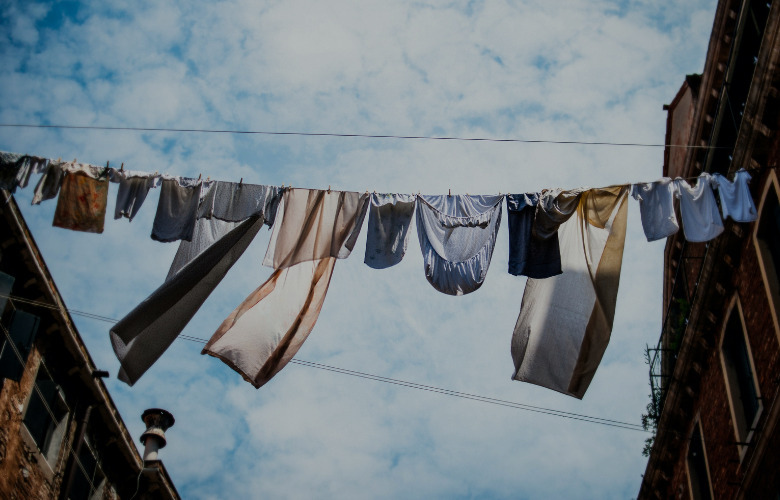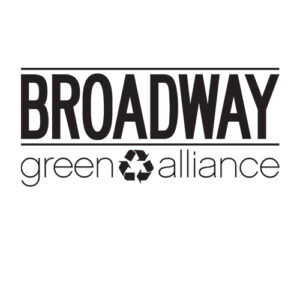
Green practices aren’t just in reducing waste. There are several ways you can decrease your production’s environmental impact through your wardrobe department.
Invest in an ENERGY STAR washer, which on average uses 20 percent less energy and 35 percent less water than basic models of new washers on the market. An ENERGY STAR washer saves approximately 284 kWh of electricity and 3,385 gallons of water a year compared with a non-ENERGY STAR model.
For more information, please see the NRDC’s Saving Water and Energy through Clothes Washer Replacement.
By purposely selecting fabrics for costumes that are more durable and easily cleaned, your costume designs can help reduce toxic cleaning procedures.
The Theatre Development Fund’s Costume Collection program will pick up any usable costumes or costume pieces from closing shows, and provides discounted rentals to nonprofit theatres.
Material for the Arts accepts donations of costumes, fabrics, trim, and other accessories. Shows can either drop off donations at their Long Island City warehouse, or donations over 250 pounds and/or over $1000 in value will qualify for a free pickup. Pickups should be scheduled 3-4 weeks in advance. Donations can also be shipped. Contact them at donations@mfta.nyc.gov or call 718-729-2065.
Wearable Collections has many drop-off locations throughout New York, including a collection barrel at the BGA office, Actors’ Federal Credit Union, and Local 764 Wardrobe Union year-round. The BGA also hosts semi-annual textile drives in Times Square (March and September) to collect used costumes, clothing, accessories (such as shoes, handbags, belts, and hats), curtains, linens, towels, and other textiles for reuse and recycling by Wearable Collections.
Waste Reduction: Green Practices in Theatre Part 2
Getting to Work: Green Practices in Theatre Part 3


The Broadway Green Alliance (BGA) is an industry-wide initiative that educates, motivates, and inspires the entire theatre community and its patrons to implement environmentally friendlier practices on Broadway and beyond. The BGA was founded in 2008 in collaboration with the Natural Resources Defense Council. The Broadway Green Alliance is an ad hoc committee of The Broadway League and a fiscal program of Broadway Cares/Equity Fights AIDS. Along with Julie’s Bicycle in the UK, the BGA is a founding member of the International Green Theatre Alliance. The BGA has reached tens of thousands of fans through Facebook, Twitter, Instagram, YouTube, and other media. As a community of industry and environmental professionals connected by the shared goal of normalizing greening practices on Broadway and beyond, the BGA has successfully implemented significant sustainability reform at the forefront of the industry.
Read Full Profile© 2021 TheatreArtLife. All rights reserved.

Thank you so much for reading, but you have now reached your free article limit for this month.
Our contributors are currently writing more articles for you to enjoy.
To keep reading, all you have to do is become a subscriber and then you can read unlimited articles anytime.
Your investment will help us continue to ignite connections across the globe in live entertainment and build this community for industry professionals.